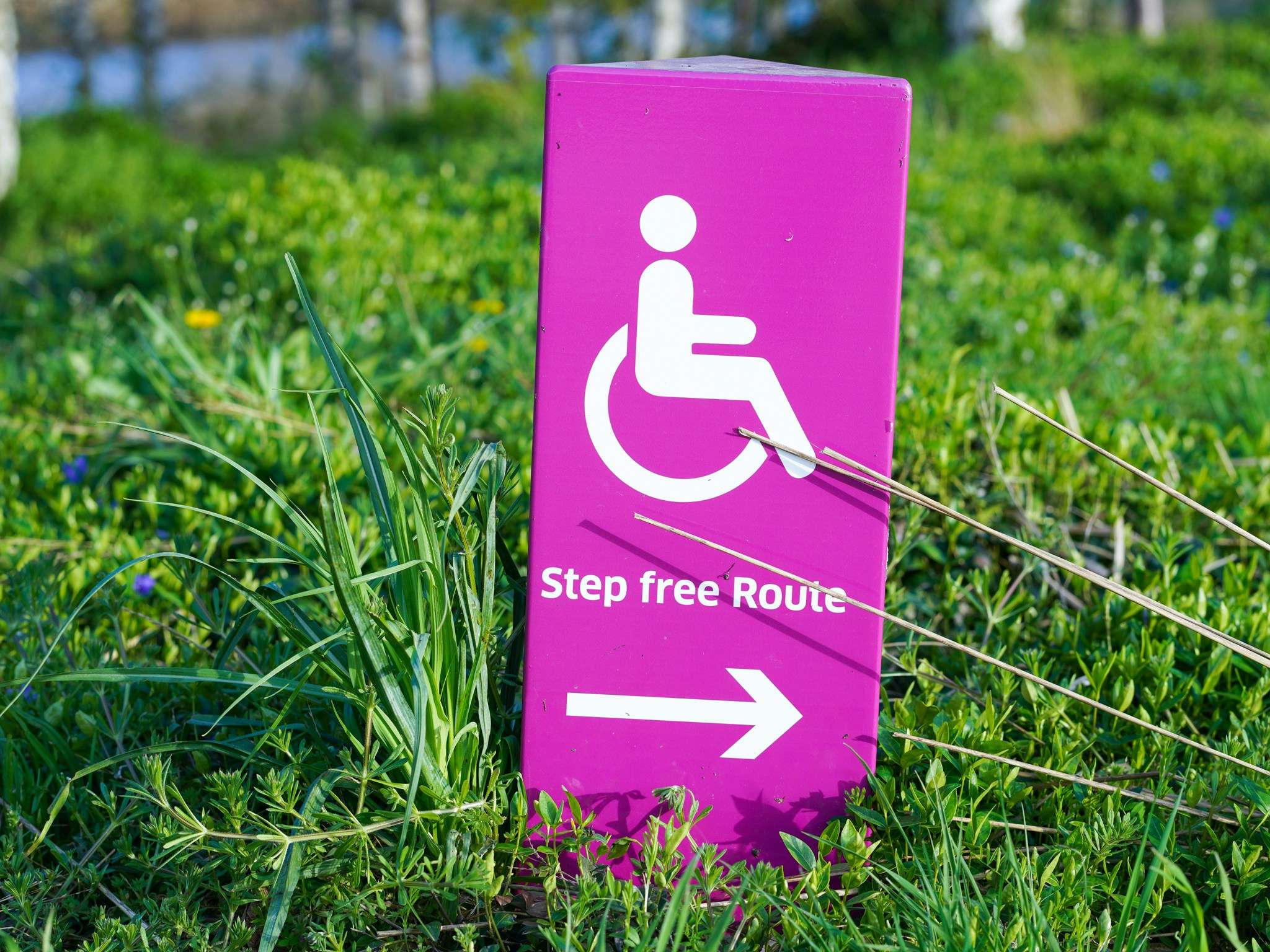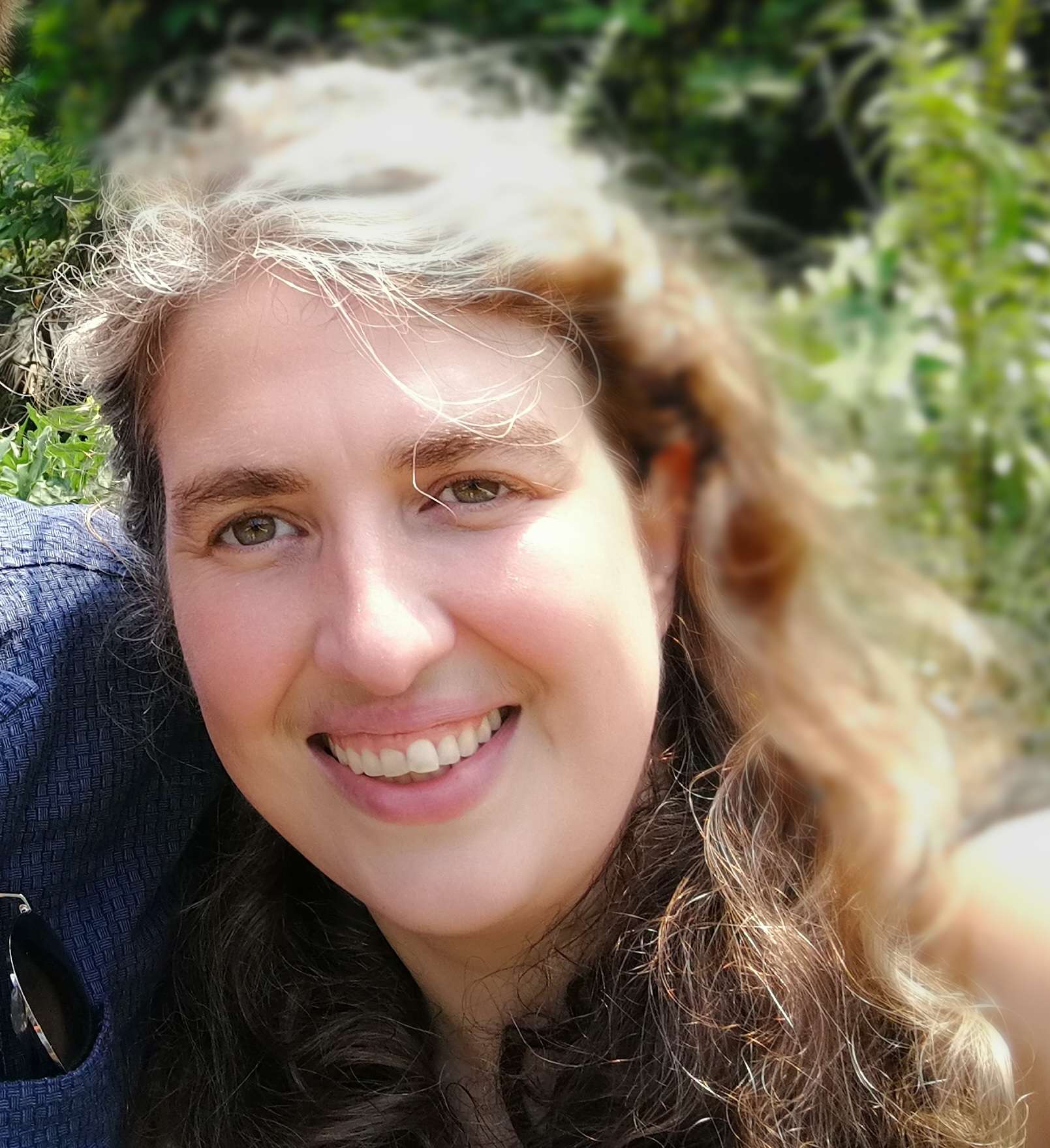BFS Archivist and Stockholder Karen Fishwick—also a regular volunteer and organiser of genre conventions—reflects on how we can make conventions more accessible.
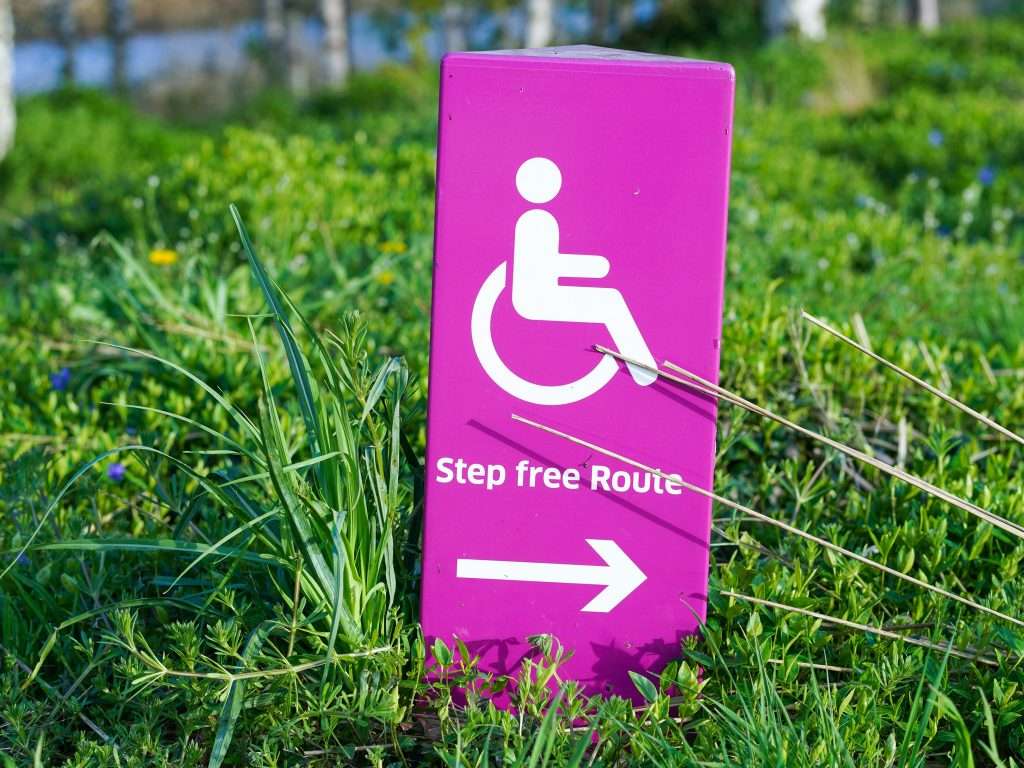
I have a bad habit that when something really annoys me I find myself trying to fix it… It seems to get me into all sorts of trouble!Â
A few years ago, I felt an event I attended had really struggled to make things accessible. The access policy came out quite late and the accommodations seemed to be a bit of an afterthought. I am sure there are good reasons for that; all these events are run by volunteers who try to fit their roles into busy lives and they don’t always go to plan. This is not intended to snipe at those hard-working volunteers, but it made me sad that accessibility had been the thing that fell down.
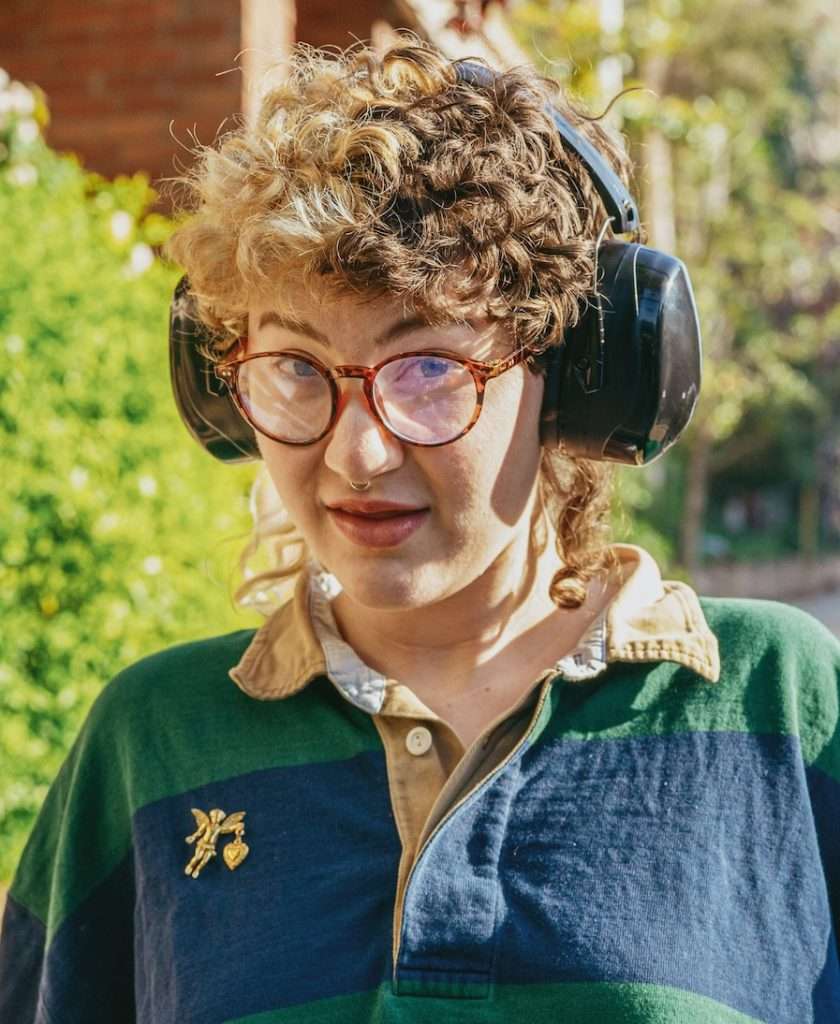
I had also felt for some years that science fiction conventions could be good at accessibility for those with visible disabilities, but had no real understanding about invisible disabilities or how accommodations could help those who did not think of themselves as disabled.Â
It’s important to note that there is no such thing as a totally-accessible event; there will always be things outside of the event organisers’ control, plus some access needs compete or accommodations are unfeasibly expensive. But it’s worth reflecting on what is possible when so much is volunteer-run.
For those who don’t know me, I have Ehlers Danlos Syndrome and Vasovagal Syncope. This can make conventions difficult because I can’t stand for long and am often in pain and/or fatigued. This meant that when a team was being put together for Conversation/Eastercon 2023, I agreed to take on the accessibility role; I took the same role for Levitation/Eastercon 2024, held last month.Â
I’m probably not the most helpful committee member! I have strong opinions, my diary makes fitting in meetings difficult, and fatigue can make meetings a challenge. Having said that, I hope I have brought some useful changes to Eastercon’s approach.Â
For example, it used to be normal to have badges or ribbons with the word “access” (or something similar) to indicate that you needed an accommodation such as seats for queueing. When I queried whether I was required to wear the ribbon on my badge at all times (once stuck, it is difficult to remove or re-stick), I was told (by the head of access) that if I did not wear the ribbon, I could not have the accommodation.Â
To my mind, it’s not a good look to require a minority group to wear badges to identify their membership of that group. It is also not particularly helpful. If I am volunteering for an event, I don’t know if the attendee wearing an access badge needs a chair, is deaf, or has some other need. A badge saying “access” does not tell me anything until the person speaks to me and lets me know what they need. If we are a part of a supportive and caring community and someone says they need a seat—maybe, we give them a seat. Maybe we shouldn’t check if they are wearing a badge before we decide if we will help them.Â

However, we live in an ableist world where disabled people are vilified by the media and expected to prove their disability to complete strangers on a regular basis. So disabled people are not always confident that their needs will be met.Â
At Eastercon, we gave out access cards instead of badges. They stated specific needs: “I need a chair”; “I need to lip read”, and so on. They don’t say why or require the person holding the card to give medical information. They are also not intended to be worn as a badge. This aids communication or gives confidence that the need will be respected—but they are entirely optional. It should always be enough to simply state what you need.Â
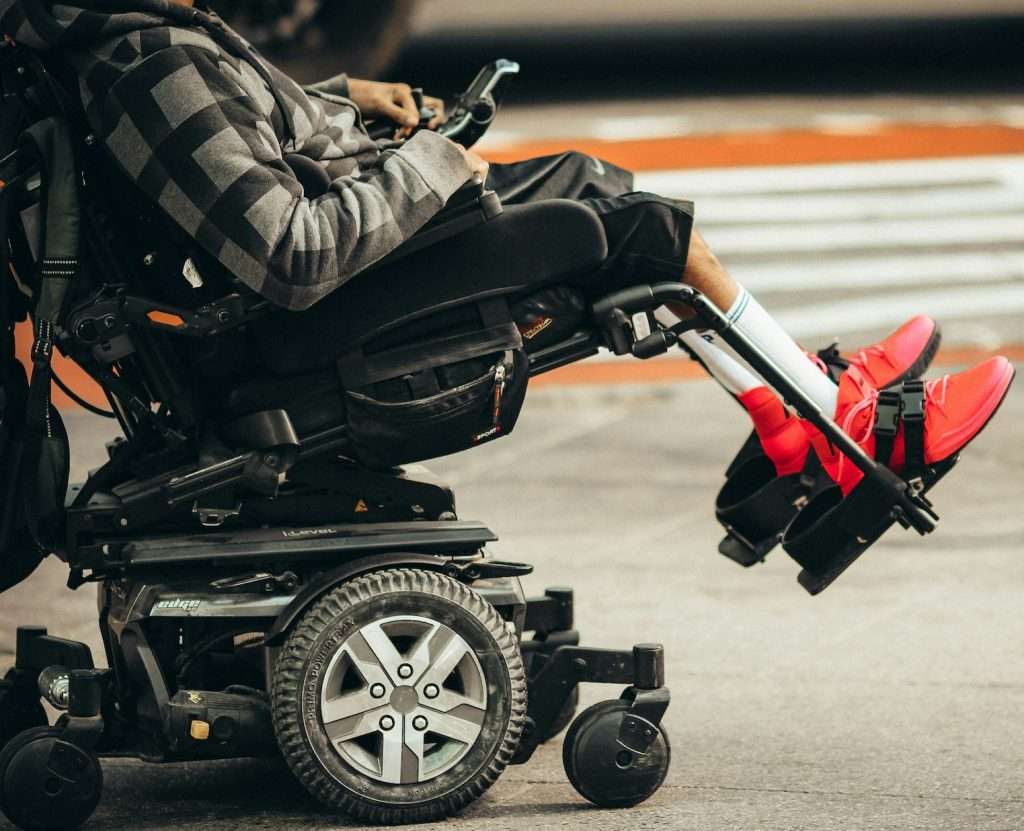
I also feel that getting accessibility information out to attendees, highlighting flaws or potential issues ahead of time, means that people can make their own decisions about the event and what they need by way of accommodations. Access audits and access policies are one way of doing this:
- Access audits tell you about the venue itself, details of doors, stairs, lifts, floor surfacing, etc.Â
- Access policies tell you what the convention is planning to do in terms of signage, priority seating, quiet rooms, and so on.Â
So, this year I got to Eastercon on Thursday so I could check the room layouts. I needed to make sure there were spaces for wheelchairs and scooters to park and turn, to mark walkways, to put priority seating signs on chairs. Over the weekend I was mostly in the dealers’ room on the BFS table, recruiting new members and promoting Fantasycon 2024 in Chester and World Fantasy Convention 2025 in Brighton. I quite enjoy this work as it gives me a place to sit while others come to me and chat. I also had a couple of shifts as Duty Committee Member, which is essentially being a problem solver and point of contact for enquiries, but nothing particularly noteworthy came up.Â
We also had a BFS meet up in the Holiday Inn bar on Friday night. It was lovely to see familiar faces and a few new ones. I always feel, when I see people from the BFS or Fantasycon attendees at an event, that I have a crowd to hang out with. Everyone is so friendly. By the end of the whole event, I was pretty tired and in a certain amount of pain, but I had fun and caught up with a number of friends. Eastercon numbers were down this year, so there were lots of friends that I missed. However, there are a lot of events this year. I plan to be at Worldcon, Fantasycon, World Fantasy Convention (in Niagara Falls, New York), Novacon and Dragonmeet. Do come and say hi if you are at any of those.Â

Images by Photo by Yomex Owo, Jon Tyson, Alexander Grey, charlesdeluvio, Hiki App on Unsplash

